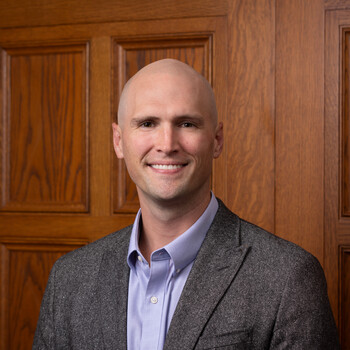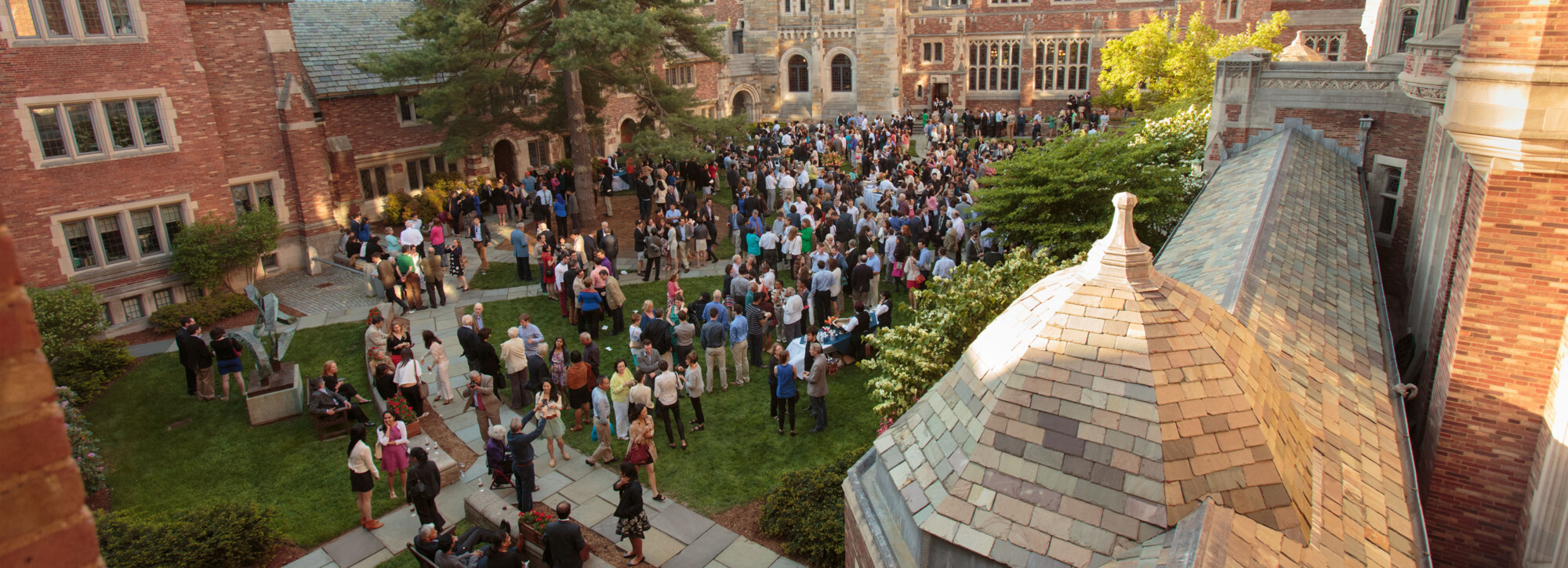
The motto for the U.S. Air Force Special Warfare’s Pararescue is “These things we do, that others may live.”
It’s a motto that, for Zac Cobb ’27, has deep personal meaning. Long before he joined the military, he was inspired by the example of Pat Tillman, the American professional football player who enlisted in the Army following the 9/11 attacks and was later killed by friendly fire while serving in Afghanistan.
“Pat is a personal hero of mine. His story is so incredible, and every American should know about it,” said Cobb.
After completing an undergraduate degree at the University of Texas at Austin and working in investment banking in New York City for several years, he decided to enlist in the Air Force with the goal of becoming a Pararescueman.
“Military service had always been in the back of my mind,” he said. “I look back and it was the best decision I ever made.”
Pararescuemen, or PJs, are Air Force special operators who conduct search and rescue operations for the U.S. military and its allies in both civilian and combat settings.
PJs face an extremely demanding training pipeline: after passing basic training, they gain paramedic licenses and are trained in combat medicine. They are also combat dive and military free fall qualified so that they can operate in any environment and, as Cobb put it, “help people on the worst day of their lives.”
“PJs are combat medics, trained in tactics, but they’re there to help people when they get hurt. I couldn’t think of a better reason to get out of bed in the morning. It was the best job I ever had,” said Cobb. Following his training, Cobb was deployed to East Africa.

Approaching five years of service, Cobb said, he’d reached a fork in the road: he saw a path to continue his military career or start a new chapter and pursue his dream of going to law school. “In my mind, the two most important institutions to our country are our military and our justice system,” he said.
With his commitment to the Air Force fulfilled, Cobb said he enrolled at the Law School with the ultimate goal of continuing the important work of public service.
“Through law school, I saw an opportunity to move from being able to help one person at a time as a PJ to being able to help the many served by our justice system,” he said.
Cobb said he’s been humbled by the Law School’s welcome to the veteran community and inspired by the growing number of veterans and servicemembers on campus.
“Dean Gerken in particular speaks often about Yale’s commitment to including military veterans in the community,” said Cobb. A recent statistic notes that less than one percent of the U.S. population serves in the military — yet at Yale Law School, this year’s 1L class includes nearly ten percent veterans and servicemembers. With more veterans on campus than ever, Cobb said there is a real sense of community among veterans and servicemembers in New Haven.
“My experience at Yale, through the entire process with the Admissions Committee and now with the broader community, has been stellar and so wonderful,” he added.
In a way, Cobb’s journey has come full circle: He is a 2024 Tillman Scholar at Yale Law School. Awarded by the Pat Tillman Foundation, Tillman Scholarships are offered to military service members, veterans, and spouses who show promise for public and private sector leadership and are committed to “service beyond self.” Just 60 scholarships are awarded each year to scholars studying in diverse fields. This year, five Yale students were awarded Tillman scholarships, two of them —Cobb and Hillary Browning ’25 — are current J.D. students.
For Cobb, the award is a deep honor. “I’m proud to support the work they do in furthering Pat’s legacy of service and sacrifice,” he said.
During his time at Yale, Cobb is open to exploring different paths in the law, including federal prosecution, national security, or policy work. But his motto remains the same. “At the end of the day, I love public service, and I’m committed to working hard on things that matter,” he said.
This is one of a series on the growing military community at Yale Law School, where veterans and service members comprise 9% of the class of 2027.
